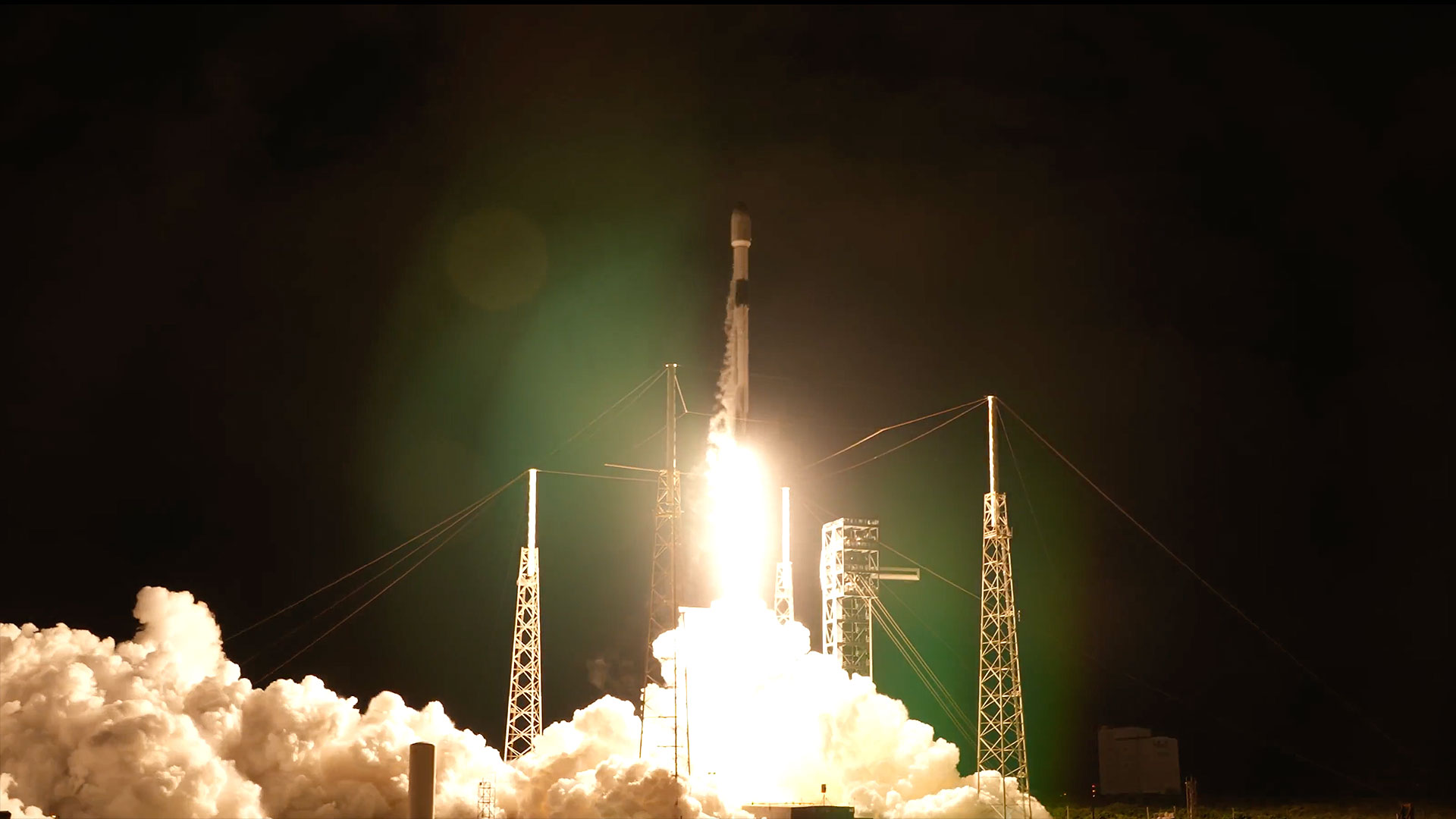Was the 'War of the Worlds' radio broadcast an early deepfake?
A new podcast argues the 1938 Martian invasion story foreshadowed the problems of media creation today.

How close was the infamous "War of the Worlds" radio broadcast of 1938 to a modern-day deepfake?
A new podcast episode argues the Orson Welles-narrated recast of a classic science fiction tale was a very early example of synthetic media, also known as a "deepfake."
Deepfakes are images or video manipulated in such a way to appear real, often without warning the viewer about the manipulation, and they represent only one way in which information can be changed for a particular purpose.
The new podcast episode, which drops Oct. 30, will open Season 2 of the "We Interrupt This Broadcast" podcast docuseries. You can download the podcast on all major platforms, and the rest of the season will be available in November. The episode is hosted by long-time broadcaster Bill Kurtis and narrated by NBC's Brian Williams, while the entire podcast is based upon the eponymous 2008 book by Joe Garner.
Related: 10 Alien Encounters Debunked
The "War of the Worlds" Oct. 30, 1938 broadcast recast the science fiction novel by H.G. Wells (first serialized in 1897) as a real-time attack on the United States by Martians. As context, the broadcast took place on the eve of the Second World War and likely played into listener anxieties about the state of the world at that time.
There were international worries about the stability of European nation-states, the rise of anti-Semitism and other issues that played key roles in the forthcoming six-year conflict. Radio was the primary means by which many people received news as it was happening, as television technology was in its infancy at the time.
Breaking space news, the latest updates on rocket launches, skywatching events and more!
The effect on listeners of the era is uncertain, with some sources saying listeners believed a real-life attack was happening. But the evidence is murky. Urban legend investigator Snopes says the accounts of panic were likely "mostly false", and that content warnings saying the story was fictitious appeared four times during the broadcast. Slate notes that few people likely listened to the broadcast (it was running in the same time slot as a more popular show), so mass hysteria could not have happened.
Smithsonian Magazine also runs comments from Welles saying he never intended to deceive his audience, although we also have to remember the infamous broadcast ended up boosted his acting career — whose highest point was the 1941 gem "Citizen Kane", which still is cited by movie critics as one of the best films of all time.
Regardless of the evidence of panic, the new podcast argues the broadcast's manipulation of information still gives us lessons learned we can think about today. "Think about it: fake news, misinformation, disinformation. Think about what Orson Welles would have done in our world of 'deepfakes', or where the news we're getting is chosen for us by an algorithm that has never met us," said Williams in the podcast, which was provided to Space.com ahead of its release.
Media literacy is a complex topic that evolves very quickly. This guide from the University of Michigan sets out the differences between fake news, misinformation and disinformation, which are all categories of manipulation discussed regularly in the past few years. A rising problem is the use of algorithms in filtering and generating news, which has landed social media giant Facebook (which announced this week it will rebrand to "Meta") into hot water – to name only one recent example.
CommonSense.org, a non-profit aiming to teach media literacy skills to children, notes that digital technology enables anyone to create media, which creates challenges in interpretation. "We don't always know who created something, why they made it, and whether it's credible," notes CommonSense.org, which added a set of questions you can ask while reading any piece of information. The bullet points below are based upon CommonSense.org's list.
- Who created this – an algorithm, an individual, a company, a comedian, a politician, or someone else?
- Why did they make it – to inform, to change your mind, to make you laugh or to get you to buy something? If it was an algorithm, who programmed it that way and why?
- Who is the message for – for example, people who share an interest or a political view?
- What techniques are being used to make this message credible or believable, such as statistics or subject expert quotes, and what are the sources of the original information? Is the information being presented in context, and how was the information collected?
- What details were left out, and why? Are all "sides" of an issue presented?
- How did the message make you feel, and why? Would other people feel similarly?
Follow Elizabeth Howell on Twitter @howellspace. Follow us on Twitter @Spacedotcom and on Facebook.

Elizabeth Howell (she/her), Ph.D., was a staff writer in the spaceflight channel between 2022 and 2024 specializing in Canadian space news. She was contributing writer for Space.com for 10 years from 2012 to 2024. Elizabeth's reporting includes multiple exclusives with the White House, leading world coverage about a lost-and-found space tomato on the International Space Station, witnessing five human spaceflight launches on two continents, flying parabolic, working inside a spacesuit, and participating in a simulated Mars mission. Her latest book, "Why Am I Taller?" (ECW Press, 2022) is co-written with astronaut Dave Williams.
